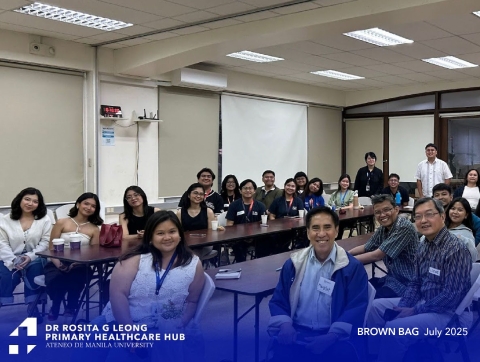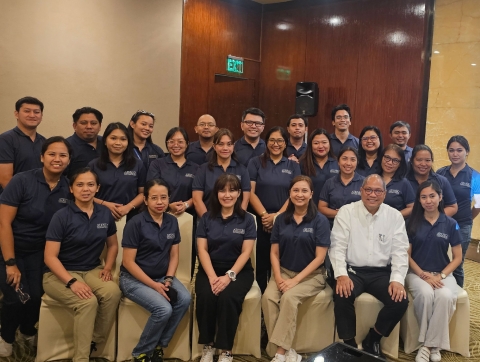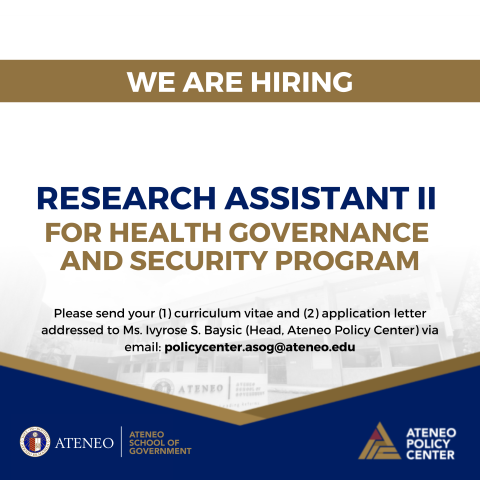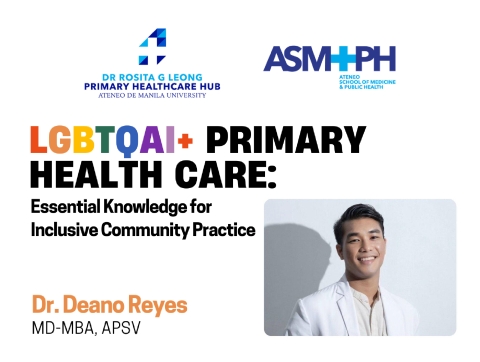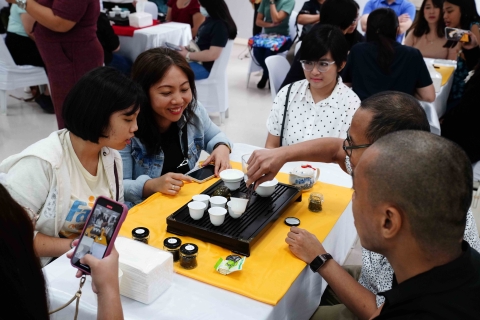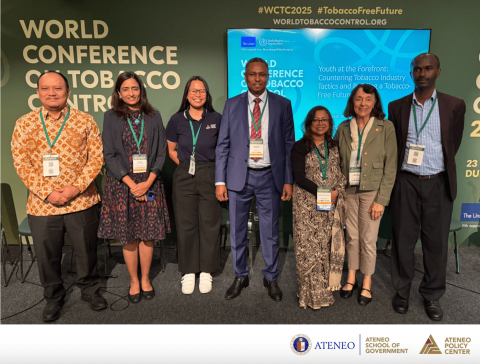Purpose-driven leadership: Q&A with MPM Health Governance track Doctor to the Barrios Dr Uriel Cachero
28 Jan 2025

As part of this school year’s Ateneo School of Government (ASoG) Master in Public Management (MPM) roster of medalists, Dr Uriel Cachero, MPM Health Governance track, Doctor to the Barrios (DTTB) Batch 38, shares his journey from medical school, to the barrios, and back to school again – and where all these have led him.
How does it feel to be a medalist in this batch?
I am Uriel C Cachero, a licensed physician and public health advocate, with 3 years of experience in community health, health education and promotion, and building partnerships with local government units. Personally, it feels like the hard work that I put into both my professional and academic life really bore fruit. Balancing the two of them was really difficult, so knowing that I was able to do well enough to be recognized, that in itself was the reward.
Why did you decide to apply to Ateneo, and why MPM specifically?
As a Doctor to the Barrio, it’s not enough to know the clinical management of patient disease. There’s a need to interact with many stakeholders in the community, from indigenous and religious leaders, to barangay and municipal officials. So, it’s necessary to arm ourselves with the skills and knowledge to carefully (and decisively) weave through the sociocultural and political landscape that would help us to champion reforms in the local health system. I believe the Ateneo as an institution of high repute had the capacity to teach me what I needed to become a better instrument for positive change for the people that I serve.
How did you find your experience with your fellow students and with the faculty? Any stories and lessons you would like to share?
I am truly appreciative of my classmates and the faculty because they helped to really widen my perspective as they share their stories and experiences in local leadership, struggles with corruption, and achievements that we can also emulate and ponder on. My classmates helped me to feel that I am not alone as we talked about our shared experiences as community physicians. We have built a network of trust and companionship that I believe will last a lifetime.
There’s really too many to count, but because of our class’ diverse profile, with members throughout the entire Philippines, I truly understood that thinking of solutions to public health and management problems really can’t be one-size-fits-all. The sociocultural and [political] landscape of the Philippines demands that we adjust to it. And to do that means to immerse ourselves with the people we wish to serve so that we can work together towards building communities that are resilient, self-sustaining, and empowered.
What life lesson/s will you take away from your MPM experience?
The MPM program really taught me to be humble; that I still know very little. But that isn’t necessarily a bad thing, rather it’s an opportunity to develop myself and become someone who can better serve others. I realized that I’m really in for a lifelong journey of learning. Not only about the things around me and the complex systems that govern society but also to learn more about myself. And in this journey, I am not alone. I am joined by the many people who hope for a brighter future for the Philippines, and that we only need to tap into our potential in order for us to grab the future that we seek.
While nothing’s ever set in stone, I really hope to continue to pursue a career in public health, particularly health policy development. I also want to take further studies on health economics and policy to better equip myself with the knowledge and skills to improve health equity for all Filipinos
Given the chance to talk to a future MPM student, what words of wisdom would you give?
Be a sponge: soak up all of the knowledge you can and don’t be afraid to ask questions. The ASoG MPM program is a rich environment that will really unleash your potential, but only if you allow yourself to be open: open to listen and open to share your own story, so that everyone in your class can also learn from you.
The Doctor to the Barrios Program was created by the Department of Health (DOH) to address the lack of doctors practicing in rural communities in the Philippines. ASOG’s DTTB students study under the MPM Health Governance (MPM-HG) Track.
The Ateneo School of Government congratulates the Master in Public Management Class of 2024. The School hopes that all their students and graduates embody the values that the institution epitomizes and that they find their purpose, wherever they may choose to serve. May they all serve as inspirations and models for the societal change that the country deserves.
This article is part of a series of features about this year’s MPM medalists. You may read more about our other medalists and valedictorians here.
